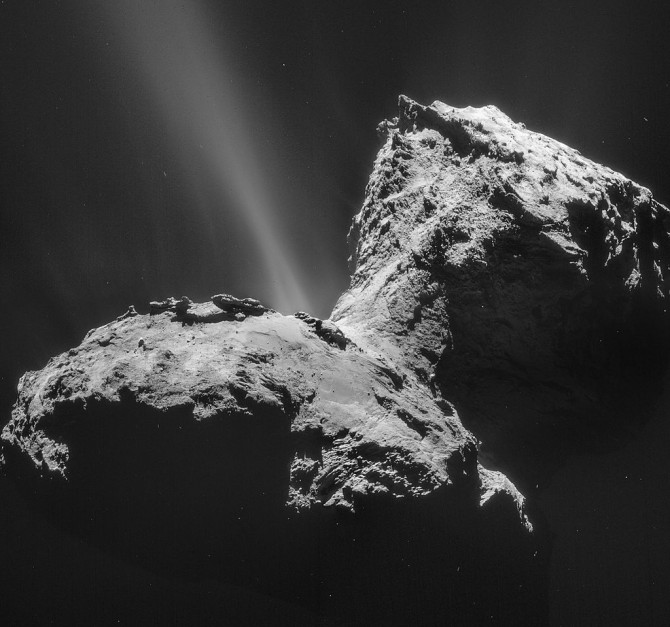Steve Squyres to speak on proposed NASA mission
By Linda B. Glaser
Planetary scientist Steve Squyres has been roving Mars – virtually – for 14 years, as principal investigator for the Mars Exploration Rovers. Now a smaller, icier body has caught his eye: Comet Churyumov-Gerasimenko (comet 67P), from which Squyres wants to bring a sample back to Earth. On July 26, Squyres will explain the exciting science behind the proposed Comet Astrobiology Exploration Sample Return (CAESAR) mission. His talk, at 7 p.m. in Klarman Hall’s Rhodes-Rawlings Auditorium, is free and the public is invited.
“Comets are the most primitive building blocks of our solar system. Retrieving a sample from the surface of comet 67P can provide unparalleled knowledge about pre-solar history, planet formation and the steps that led to the origin of life,” said Squyres, the James A. Weeks Professor of Physical Sciences in Cornell’s Department of Astronomy.
The CAESAR mission is one of two finalists for NASA’s New Frontiers missions. If selected, CAESAR will acquire a sample of surface material from the nucleus of comet 67P and return it to Earth for laboratory analysis. At the July 26 talk, Squyres will describe what his team must do to convince NASA to select CAESAR as the next mission in the New Frontiers program.
The next four months are a critical time for the CAESAR team, according to Squyres, who is principal investigator for the mission; Alex Hayes, assistant professor of astronomy, will serve as payload lead. The CAESAR team has funding until the end of 2018 to refine the hardware, software and mission design. NASA plans to announce in spring 2019 whether CAESAR or the other finalist, Dragonfly, will continue on to the next mission phase.
The July 26 talk is sponsored by the Department of Astronomy.
Linda B. Glaser is a writer for the College of Arts and Sciences.
Media Contact
Get Cornell news delivered right to your inbox.
Subscribe

